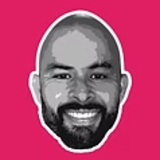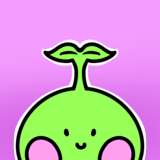Obol is hiring a Web3 UX/UI Product Designer
Location: Remote
UX/UI Product Designer
Remote /
Product /
Full Time
Apply for this job
Who Are We?
Obol Labs is a remote-first research and software development team focused on Proof of Stake infrastructure for public blockchain networks. Specific topics of focus are Internet Bonds, Distributed Validator Technology, and Multi-Operator Validation. The core team includes 14 members spread across 8 countries.
The core team is building the Obol Network, a protocol to foster trust-minimized staking through multi-operator validation. This will enable low-trust access to Ethereum staking yield, which can be used as a core building block in various Web3 products.
The Network
The network can be best visualized as a work layer that sits directly on top of the base layer consensus. This work layer is designed to provide the base layer with more resiliency and decentralization as it scales. In this chapter of Ethereum, we will move on to the next great scaling challenge, which is stake centralization. Layers like Obol are critical to the long-term viability and resiliency of public networks, especially networks like Ethereum.
Obol as a layer is focused on scaling main chain staking by providing permissionless access to Distributed Validators. The network utilizes a middleware implementation of Distributed Validator Technology (DVT), to enable the operation of distributed validator clusters that can preserve validators' current client and remote signing configurations.
Similar to how roll-up technology laid the foundation for L2 scaling implementations, we believe DVT will do the same for scaling the consensus layer while preserving decentralization. Staking infrastructure is entering its protocol phase of evolution, which must include trust-minimized staking networks that can be plugged into at scale. We believe DVT will evolve into a widely used primitive and will ensure the security, resiliency, and decentralization of public networks.
The Obol Network develops and maintains four core public goods that will eventually work together through circular economics:
The DV Launchpad, a User Interface for bootstrapping and managing Distributed Validators
Charon, a middleware Golang client that enables validators to run in a fault-tolerant, distributed manner
Obol Managers, a set of solidity libraries for the formation of Distributed Validators tailored to different use cases such as DeFi, Liquid Staking, and Fractionalized Deposits
Obol Testnets, a set of ongoing public incentivized testnets that enable any sized operator to test their deployment before serving for the Ethereum Main net
Sustainable Public Goods
Obol is inspired by previous work on Ethereum public goods and experimenting with circular economics. We believe that to unlock innovation in staking use cases, a credibly neutral layer must exist for innovation to flow and evolve vertically. Without this layer, highly available uptime will continue to be a moat.
The Obol Network will become an open, community-governed, self-sustaining project over the coming months and years. Together we will incentivize, build, and maintain distributed validator technology that makes public networks a more secure and resilient foundation to build on top of.
UI / UX Product Designer
Looking for an artist who passionately cares about bringing simplicity to complex user flows! The role will take ownership of our user facing products, including the Distributed Validator Launchpad (Pre-release in development)
About you
- Enjoys creating high fidelity UI interfaces
- Crafts design systems by defining UI patterns to improve simplicity
- Creating visually beautiful illustrations either from scratch or by modifying icon packs
- Prototypes UX mockups and seeks out feedback via user testing product experiences
What you will like about us
- Supporting Proof of Stake Ethereum, which has reduced it's energy requirements by 95%
- Developing open source public goods for permissionless networks
- Solving groundbreaking problems in distributed cryptography and cryptoeconomics
- Competitive compensation and benefits
- Twice annual Global Off-sites
- Annual opportunity to attend DevCon (or a blockchain conference of choice)
- Opportunity to collaborate with industry-leading cryptography researchers and advisors
- Opportunity to collaborate with industry-leading validators
- Opportunity to collaborate with Ethereum core client teams
🕰️ In order to scale efficiently, we focus our hiring on candidates able to work during the standard business hours of the following timezones: GMT-8 to GMT+3.
This does not mean that you have to be located in these timezones to get the job but must be able to work the bulk of your time during their standard business hours.
Apply for this job
Apply Now:
This job is closed
Web3 Designer Salary
The average yearly salary for a Web3 Designer is $140k per year, with a minimum base salary of $72k and a maximum of $245k.
Check more information about Web3 Designer Salary.
Remote Web3 Designer Jobs
| Job Position and Company | Location | Tags | Posted | Apply |
|---|---|---|---|---|
| | Remote | Apply | ||
| | Remote | Apply | ||
| | Remote | Apply | ||
 | by Metana | Info | ||
| | Remote | Apply | ||
| San Jose, CA, United States | Apply | |||
| | Remote | Apply | ||
| | New York, United States | Apply | ||
| | Remote | Apply | ||
| Remote | Apply | |||
| Remote | Apply |
Recommended Web3 Designers for this job
Cover Letter / AI Interview⬇



.jpg)
